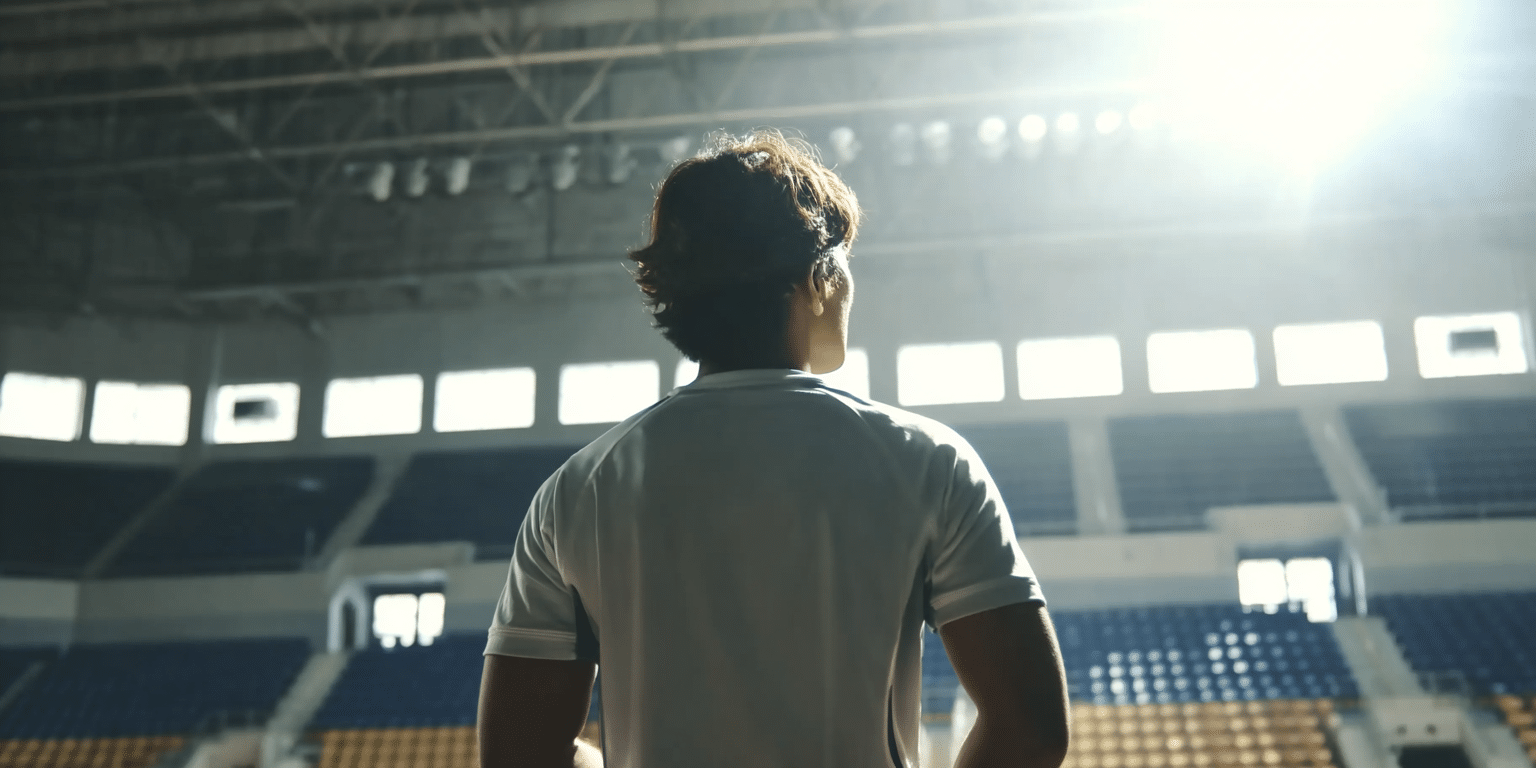Sports & Performance Psychology: Elite Lessons for Everyday Life in DC
Living in the nation’s capital can feel like playing in the big leagues—tight deadlines, public scrutiny, and traffic that tests anyone’s patience. The same mental skills that help pro athletes stay cool in the final seconds can also power your work, studies, and well‑being here in DC.
What Is Sports & Performance Psychology?
Sports & performance psychology blends research on motivation, emotion, and learning with practical coaching strategies. The specialty is recognized by the APA’s Division 47 and guided by ethical standards from the Association for Applied Sport Psychology. Recent reviews show that targeted psychological‑skills training can improve performance and well‑being in athletes and non‑athletes alike — one 2023 meta‑analysis reported medium effect sizes across 25 studies in Frontiers in Psychology.
Why DC Professionals Need a “Mental Playbook”
Washington life is intense: federal deadlines, election cycles, and competitive universities. Chronic stress can sap focus and sleep; nationwide, roughly 12 % of adults report frequent worry or nervousness, according to the CDC Mental Health FastStats. Building proven mental skills can buffer pressure and prevent burnout.
Common DC performance challenges
- High‑stakes presentations on Capitol Hill
- Marathon study sessions at Georgetown or GWU
- Training for the Cherry Blossom 10‑Miler after a 10‑hour workday
Key Mental Skills From the Locker Room
Goal Setting for Clarity & Motivation
- Use SMART goals—specific, measurable, achievable, relevant, time‑bound.
- Pair outcome goals (promotion, race time) with process goals (hours of focused practice).
Visualization & Mental Imagery
- Spend two minutes picturing a successful performance: sights, sounds, even crowd noise.
- Vivid imagery “rehearses” neural pathways, boosting confidence and technique.
Positive Self‑Talk & Confidence Cues
- Name your inner coach. Swap critical thoughts (“Don’t blow this”) for encouraging cues (“Strong and steady”).
- Keep phrases short and specific—research shows concise statements boost working memory under stress.
- Pair self‑talk with a power posture to reinforce confidence.
Quick drill: Write a three‑word mantra you can repeat before your next big task.
Arousal Regulation & Breath Control
When your heart pounds before a presentation, controlled breathing helps steady your nervous system. One athlete‑tested method is box breathing (inhale‑hold‑exhale‑hold, four counts each). Studies in the Frontiers in Psychology link paced breathing to reduced cortisol and improved focus.
- Practice while commuting on Metro—no equipment needed.
- Combine breath work with a grounding exercise (notice two sounds, two sights) to stay present.
For more on stress responses, see the NIMH anxiety overview. Knowing the biology makes these tools feel less like “woo” and more like science‑backed strategy.
Pre‑Performance Routines & Focus Strategies
Elite athletes script minute‑by‑minute routines before competition. You can borrow the same structure:
- Check your gear. For you, that might be cue cards, slides, or a water bottle.
- Center with two box‑breathing cycles.
- Visualize success—picture the opening remarks landing cleanly.
- Trigger word. Whisper your mantra as you step up.
Consistency trains the brain to enter “go mode.” Research notes that routines shrink decision fatigue, freeing up mental bandwidth for the task at hand.
Translating Athletic Strategies to DC Life
Workplace Performance
- Use a pre‑meeting routine to steady nerves before briefing your team.
- Reframe setbacks as feedback loops, the way athletes analyze game tape.
Academic Settings (Georgetown, GWU, Howard, American, Catholic)
- Break marathon study blocks into 45‑minute sprints with mini‑goals.
- Visualize delivering a clear answer in a Socratic seminar.
Fitness & Wellness Goals
- Join a local race like the Cherry Blossom 10‑Miler and apply SMART goal‑setting to your training plan.
Public Speaking & Media Appearances
- Treat interviews like game day: mindset cue, breath control, short mantra.
When to See a Sports & Performance Psychologist in DC
Not every challenge needs a professional coach, but certain signs mean it’s time to bring in a specialist:
- Persistent performance anxiety—the stakes feel paralyzing, not energizing.
- Plateau or slump despite solid training or preparation.
- Injury recovery that triggers fear of re‑injury or loss of confidence.
- Major life transition (promotion, retirement from sport, post‑grad identity shift).
- Burnout symptoms such as chronic fatigue, cynicism, or loss of motivation.
A sports & performance psychologist offers goal‑oriented mental skills plus evidence‑based therapy when deeper issues (depression, trauma) surface.
How Therapy Group of DC Integrates Performance Psychology
Our clinicians draw from counseling‑psychology roots, focusing on strengths and values rather than a one‑size‑fits‑all fix.
- Depth‑oriented + skills‑based: We combine CBT, ACT, and psychodynamic insight with performance tools like visualization and pre‑game routines.
- Life transitions & vocational growth: Whether you’re gunning for a Hill promotion or rebounding after an ACL tear, we align mental skills with your next chapter.
- Culturally responsive care for DC’s diverse professionals, students, and athletes.
- Flexible access: meet in Dupont Circle or via secure telehealth; superbills make out‑of‑network reimbursement simpler.
Quick‑Start Mental Skills Toolkit
- 5‑Breath Reset: inhale through the nose for 4, hold 2, exhale 6—repeat five times before high‑pressure moments.
- 2‑Minute Visualization Script: close your eyes and walk through the entire task—from the first step onto the stage to the final handshake.
- Daily Micro‑Goal Journal: each morning, write one process goal (e.g., “review slides for 20 minutes”) and one confidence cue (“steady & clear”).
Practise these drills for two weeks and note mood, focus, and performance changes.
Ready to Elevate Your Game?
If you’re serious about sharpening focus, building resilience, and performing at your best—on the field or in the boardroom—our team is here to help. Schedule your first appointment with at the Therapy Group of DC and start your mental training today.
Frequently Asked Questions About Sports and Performance Psychology
What does a sports and performance psychologist do?
A sports and performance psychologist specializes in helping athletes and performers improve their mental resilience, focus, and overall psychological well-being. They work with clients to address psychological factors that influence athletic performance, such as anxiety, confidence, and motivation, using applied sport psychology techniques like relaxation exercises and visualization techniques.
How can sports psychology improve an athlete’s mental health?
Sports psychology supports an athlete’s mental health by teaching coping strategies for stress, anxiety, and pressure. By developing mental toughness and positive self-talk, athletes can better manage setbacks, avoid burnout, and sustain motivation, which ultimately enhances their peak performance.
What are some common psychological aspects addressed in sport and performance psychology?
Common psychological aspects include goal setting, concentration, team building, and managing the mental aspect of competition. Sports psychologists work to improve concentration and develop a sense of confidence and control, helping athletes perform optimally in their chosen sport.
Is an advanced degree required to become a sports and performance psychologist?
Yes, becoming a sports and performance psychologist typically requires an advanced degree in psychology with specialized training in sport and performance psychology. This ensures professionals are equipped with the ethical principles and applied knowledge necessary to support clients effectively, whether in private practice or working with sports teams.
How does performance psychology focus on helping injured athletes?
Performance psychology focuses on aiding injured athletes by addressing the psychological impact of injury, such as fear of re-injury or loss of confidence. Through relaxation exercises, mental imagery, and counseling, sports psychologists help athletes maintain mental resilience during recovery and prepare for a successful return to sport.


